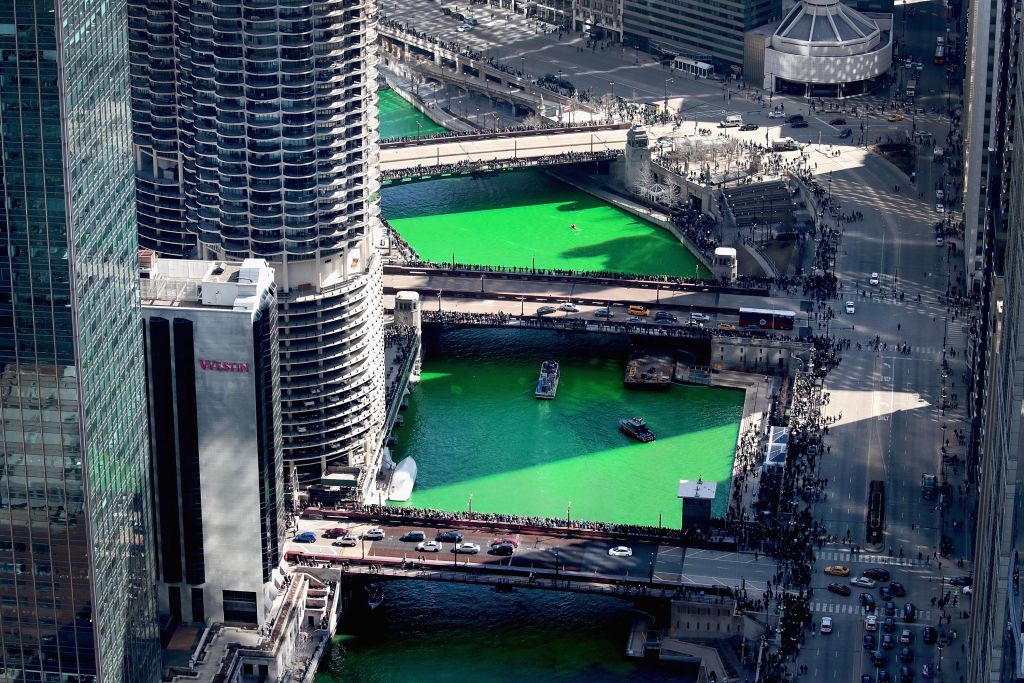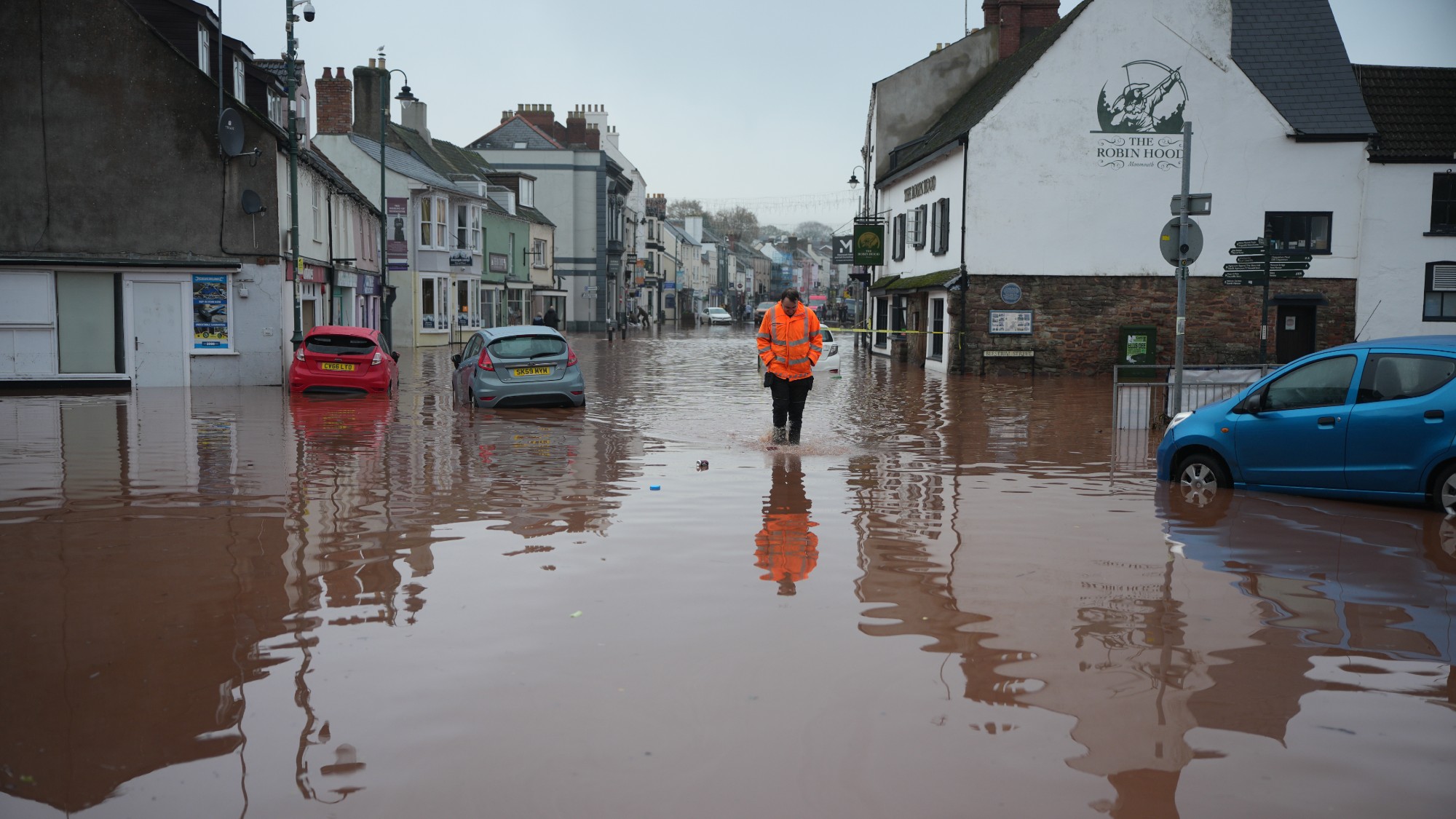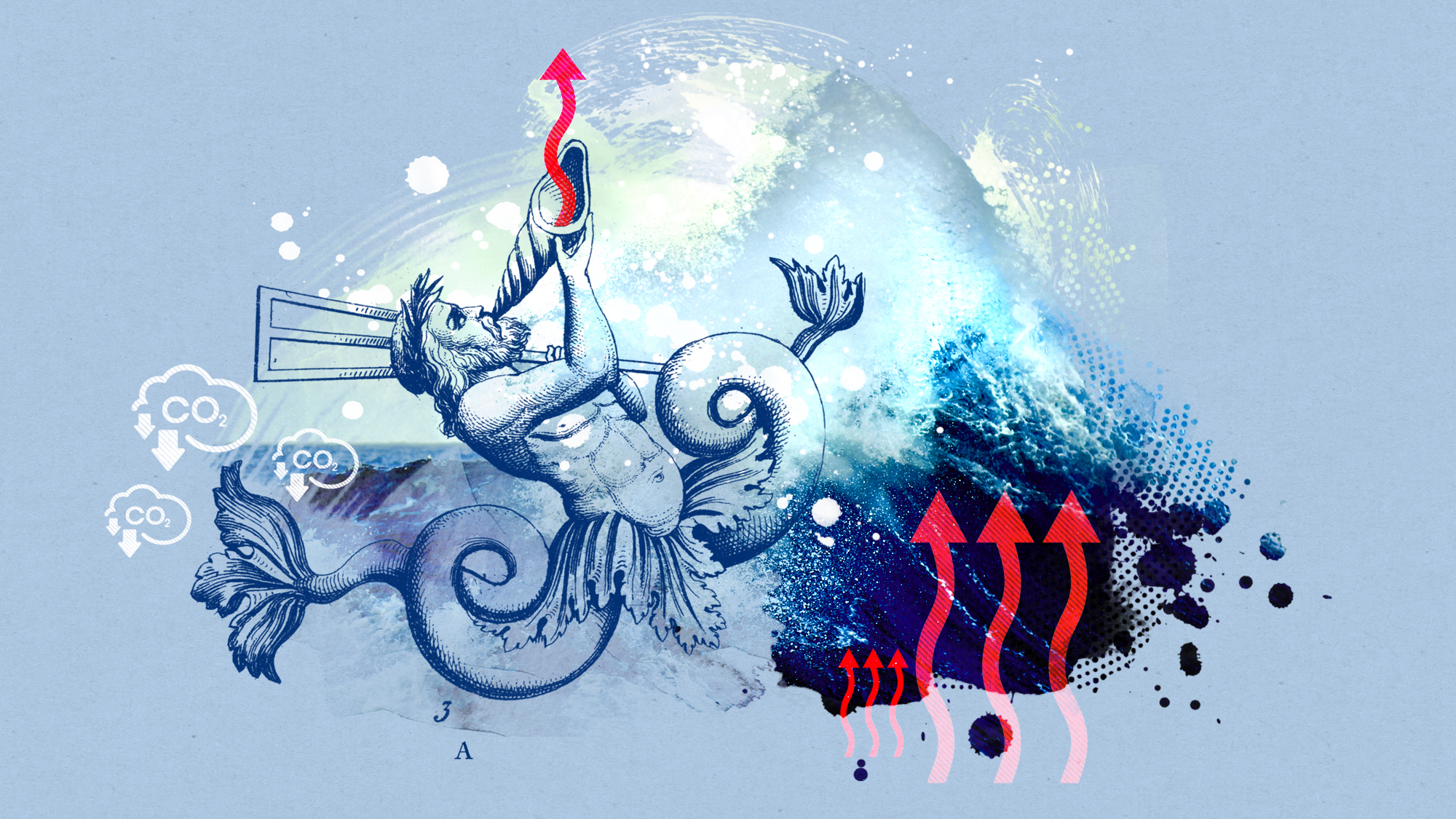Is it time to stop dyeing the Chicago River green for St. Patrick's Day?
The sharpest opinions on the debate from around the web


A free daily email with the biggest news stories of the day – and the best features from TheWeek.com
You are now subscribed
Your newsletter sign-up was successful
March is often a green-filled month, as St. Patrick's Day traditions abound while Ireland's national festival is celebrated around the world. One longstanding ceremony is the dyeing of the Chicago River, when artificial coloring is used to turn the water an emerald green during the week leading up to St. Patrick's Day.
The event is a cultural milestone in the city of Chicago, with thousands lining the river every year to catch a glimpse of the green hues in action. Chicago's Irish heritage often looms large during the holiday, with Block Club Chicago reporting that an estimated 75,000 people attended the city's annual St. Patrick's Day Parade in 2023 — the largest gathering outside of Dublin.
However, the practice of dyeing the river, which began in 1962, has not been without controversy. While the city has consistently maintained that the dye is completely safe for the environment, some activists are not so sure. Groups have also been speaking out about the potential message that dyeing the river could be sending about the river's ecosystem.
The Week
Escape your echo chamber. Get the facts behind the news, plus analysis from multiple perspectives.

Sign up for The Week's Free Newsletters
From our morning news briefing to a weekly Good News Newsletter, get the best of The Week delivered directly to your inbox.
From our morning news briefing to a weekly Good News Newsletter, get the best of The Week delivered directly to your inbox.
Dyeing the river green is ecologically irresponsible
While Chicago has asserted that the dye being used is safe, some feel that there are other concerns that may arise from turning the river green. "Dyeing the river perpetuates the notion that it can be treated any way anyone wants, rather than protected as a valuable natural resource," Margaret Frisbie, head of advocacy group Friends of the Chicago River, tells EuroNews. Frisbie adds that, in the age of continuing environmental pollution, "our land and waterways need protection and our traditions need to evolve to reflect that."
Frisbie also tells NPR that, while officials say the dye is safe, the Illinois EPA "has never required a [pollutant discharge] permit so there is no way to know what the dye is or whether it is harmless." Isaac Green agrees that questions remain, and writes for Niche Canada that "even if the dye itself isn't ecologically harmful, the process of dying the river can sustain harmful ecological ideas." Green adds that dyeing the river is akin to treating it as a sewer, and writes that the practice "can be interpreted as a surreptitious disenfranchisement of the river."
The dye that is used is completely safe
The Illinois EPA has been cautiously quiet about the dye used in the river, while also maintaining that it is totally safe. "The dye used is a food grade dye also used in medicine, as the colorant for antifreeze and as a tracer dye. Illinois EPA found that at the concentration used in the Chicago River, it is completely non-toxic," the agency said in a statement, per Niche Canada.
Most environmental groups themselves don't challenge the validity of the dye's safety itself, Megan Crepeau writes for the Chicago Tribune, though she adds that you shouldn't "even bother asking what the dye is made of." Josh Mogerman, a spokesman for the National Resources Defense Council, told the Tribune that the river "is a waterway that has all sorts of really big issues that we focus on a lot more than vegetable dye going in on one day."
A free daily email with the biggest news stories of the day – and the best features from TheWeek.com
Umbra Fisk writes for environmental magazine Grist that the dyes used "are typically veggie-based, carry no real eco-toxicity concerns, are considered safe for aquatic critters, and are certified for use in drinking water by the National Sanitation Foundation." Fisk adds that when it comes to safety issues, "I'd say a Shamrock Shake poses more health and environmental dangers than the annual dyein' of the green."
Chicago's river dyeing is simply not necessary
An editor's letter to the Chicago Sun-Times argues that "we should not be dyeing rivers, whether we have the ability to do it or not." The letter adds, "Chicago loves Lake Michigan. It would never be contemplated to dye the lakefront." Why, then, it asks, does the city take this type of action with the river?
"St. Patrick's Day can be celebrated without humiliating the river and freaking out the wildlife!" the letter adds. The writer of the letter, Willie Levinson, tells CBS News that the dyeing was "like parading the Chicago River out in a dress."
Levinson feels that there are other ways to honor St. Patrick's Day, and calls the dyeing of the river "lazy."
Dyeing the river is part of a Chicago tradition
Many people appreciate the American traditions associated with St. Patrick's Day — including those in Ireland. Jennifer O'Connell writes for The Irish Times that even though some of it may be considered cultural appropriation, "We love it. Please appropriate away. Keep printing those Make St. Patty's Day Great Again T-shirts and eating your corned beef." O'Connell adds that Americans should participate in the holiday because "it's more than a tradition. It's your patriotic duty."
"Once I went to college in Chicago, a city that dyes its river green for the holiday, it became an event," Katrina Diaz writes for Time, adding that the Irish "could care less about the superficial aspects of celebrating their holiday." For them, she writes, "it's about 'the craic' — coming together to celebrate their families, their friendships and their cultural heritage," which the dyeing of the Chicago River helps to do.
Justin Klawans has worked as a staff writer at The Week since 2022. He began his career covering local news before joining Newsweek as a breaking news reporter, where he wrote about politics, national and global affairs, business, crime, sports, film, television and other news. Justin has also freelanced for outlets including Collider and United Press International.
-
 The ‘ravenous’ demand for Cornish minerals
The ‘ravenous’ demand for Cornish mineralsUnder the Radar Growing need for critical minerals to power tech has intensified ‘appetite’ for lithium, which could be a ‘huge boon’ for local economy
-
 Why are election experts taking Trump’s midterm threats seriously?
Why are election experts taking Trump’s midterm threats seriously?IN THE SPOTLIGHT As the president muses about polling place deployments and a centralized electoral system aimed at one-party control, lawmakers are taking this administration at its word
-
 ‘Restaurateurs have become millionaires’
‘Restaurateurs have become millionaires’Instant Opinion Opinion, comment and editorials of the day
-
 Earth is rapidly approaching a ‘hothouse’ trajectory of warming
Earth is rapidly approaching a ‘hothouse’ trajectory of warmingThe explainer It may become impossible to fix
-
 The environmental cost of GLP-1s
The environmental cost of GLP-1sThe explainer Producing the drugs is a dirty process
-
 Why scientists want to create self-fertilizing crops
Why scientists want to create self-fertilizing cropsUnder the radar Nutrients without the negatives
-
 ‘Jumping genes’: how polar bears are rewiring their DNA to survive the warming Arctic
‘Jumping genes’: how polar bears are rewiring their DNA to survive the warming ArcticUnder the radar The species is adapting to warmer temperatures
-
 How will climate change affect the UK?
How will climate change affect the UK?The Explainer Met Office projections show the UK getting substantially warmer and wetter – with more extreme weather events
-
 The Southern Ocean is holding in a ‘burp’
The Southern Ocean is holding in a ‘burp’Under the radar The heat from the past can affect the future
-
 Builders return to the stone age
Builders return to the stone ageUnder the Radar With brick building becoming ‘increasingly unsustainable’, could a reversion to stone be the future?
-
 Scientists want to use enhanced rock weathering to cool the Earth
Scientists want to use enhanced rock weathering to cool the EarthUnder the radar Rock dust could trap atmospheric carbon
